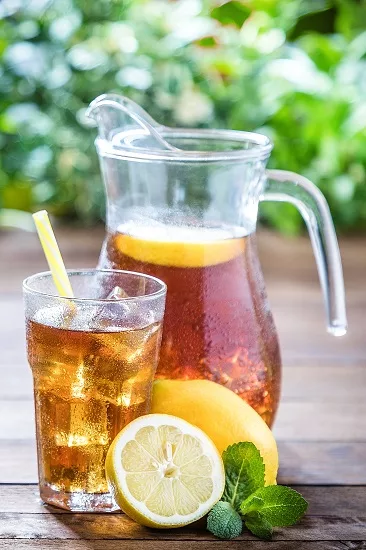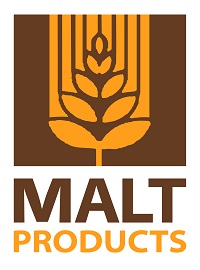In the Beverage Industry, Natural Sweeteners Match Natural Products

Emphasis on natural ingredients and avoiding added sugars is driving the anti-artificial and functional ingredients movement. While health food has outpaced beverages, a recent proliferation of nutrition and performance drinks have emerged to quench consumer thirst for functionality, clean label, and healthy lifestyle choices.
According to Mintel, nearly a third of consumers have increased consumption of nutrition or performance beverages. Simultaneously, consumers are increasingly turned off by ingredients considered unnatural or frivolous, including added sugars and artificial sweeteners.
Sponsored by

Here, one type of sweetener is starting to hit a sweet spot: Malt and oat extracts are becoming attractive options for subtle, pantry-friendly sweetness that meet the clean label demands of discerning, health-conscious consumers.
Non-Alcoholic Beers…with a Twist
Already a staple in Germany, non-alcoholic beers are gaining traction in the United States as a viable sports recovery beverage. Most beers, of course, already include malt; non-alcoholic beers eliminate the health risks of alcohol while retaining the benefits of malt, including high antioxidant content and substantial amounts of polyphenols—plant compounds with anti-inflammatory properties. In the US, it is not uncommon to add unique flavors, both for extra sweetness and fruitier notes. This is where malt extracts are leaving their mark on the market.
Exemplified by the 2019 debut of Heineken 0.0, popular brands are jumping on the NA beer bandwagon. Others, like Athletic Brewing Company—whose very name ties fermented beverages directly to fitness/athleticism—have sprouted up to create non-alcoholic brews with refreshing craft taste. Such startups have identified a gap in the beverage market and capitalized on increasing consumer demand for all-natural, good-for-you beverages that support active lifestyles.
Energy Drinks
Per Beverage Industry Magazine, the majority of consumers aged 18-54 feel that nutrition and performance drinks contain too many artificial ingredients, encouraging the trend toward more-natural alternatives. Aligning with this, a 2017 Nielsen survey reported that 39% of Americans are trying to eat a more plant-based diet. Malt extract offers an attractive balance of performance benefits and naturalness.
As consumers seek energy-boosting beverages without negative side-effects of the caffeine, a subset of energy drinks involves alertness and brainpower. Malt extract contains hordenine, a natural stimulant reported to boost focus, energy, and motivation. Hordenine is used in many dietary supplements for athletic performance and weight loss; malt extract naturally contains this stimulant, eliminating the need for added or artificial ingredients.
In Asia and Europe, malt-based drinks such as Ovaltine and Nestle’s Milo are popular among children. Here, the type of sugar makes a significant nutritional difference, because malt extract is composed of glucose and maltose, as opposed to fructose. While glucose is an “energy sugar” necessary for cell prosperity, fructose—which is found in HFCS and sucrose/table sugar—is basically a toxin processed by the liver. Malt extract offers the added benefits of soluble fiber and protein. Considering this vital disparity, beverages using malt extract can gain traction in other regions and become a mainstay go-to energy drink for athletes and non-athletes alike.
Kombucha and Specialty Teas
Malt extract is popular in kombucha and other fermented drinks, as well as certain specialty teas. Two notable benefits of malt extract are its abundance of antioxidants—more than five times the antioxidant power of fresh broccoli—and its support of gut health by optimizing the good bacteria and minimizing bad bacteria.
Another benefit of malt extract driving the trend is purely logistical: It eliminates the need for a conventional brewing operation. This is a plus particularly for startup beverage manufacturers seeking to limit operational infrastructure as they gradually build business. Utilizing malt extract eliminates the need for a contract brewery, since it is already brewed.
Malt extract is essentially wort—ground, mashed and water-filtered malt barley—sent to an evaporator for water removal rather than to a fermenter. For beverage manufacturers using malt extract, all that is needed is a bottling plant, making it far easier to enter the emerging yet still-niche malt-based beverages market.
Oat Milk Sales Soar
As recently noted in the Financial Times, oat milk sales have skyrocketed, leading to a nearly single-product surge in demand for oat extract sweeteners. Blending oats and malt barley, the extracts provide excellent binding properties with mild sweetness and a pleasant oat taste and aroma. Oat extract is also naturally high in protein, minerals, and antioxidants while offering improved texture.
Oat milk has a longer shelf life and is more functional than standard dairy milk. It is ideal for consumers making a switch to dairy-free ingredients and aligns with plant-based diets. Fortunately, oat milk is a viable substitution for a number of dairy-based favorites, including coffee creamers.
About the Author
Amy Targan is President of Malt Products Corp., a manufacturer of malted barley extract, oat extract, and other natural, nutritious sweeteners. www.maltproducts.com.